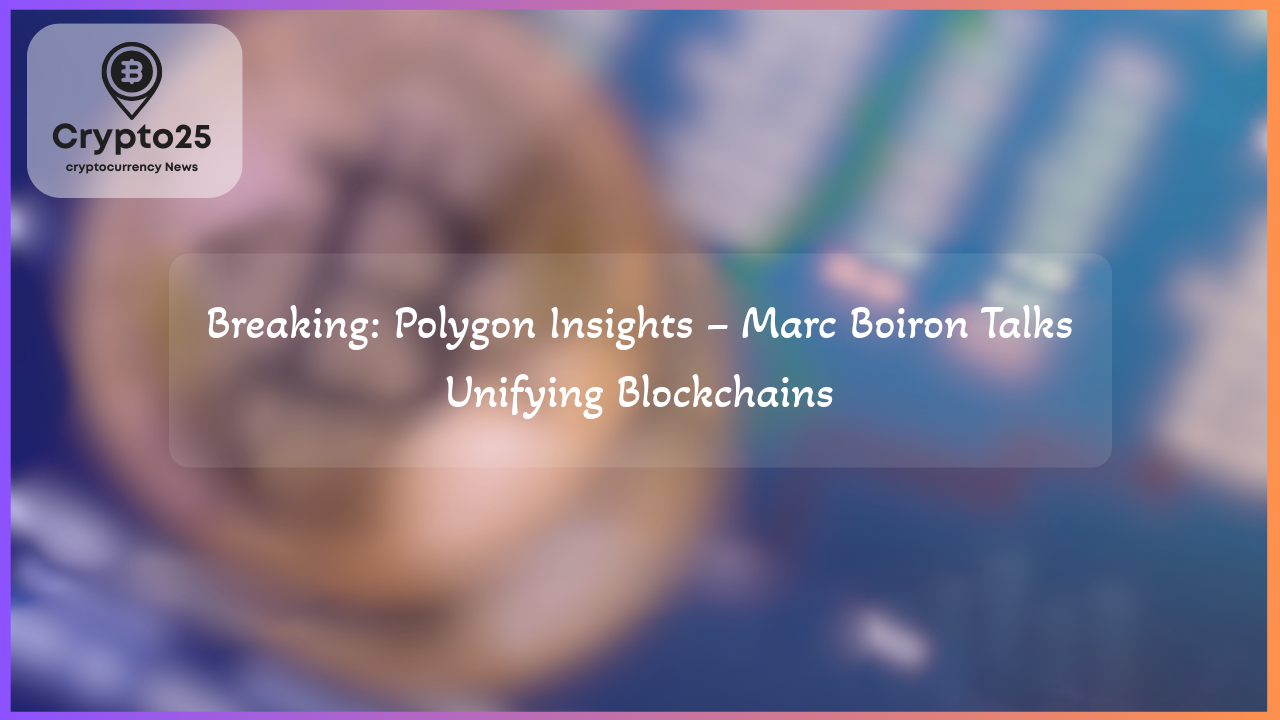
Polygon Labs continues to solidify its position as a trailblazer in the blockchain industry, driven by a vision to unify the increasingly fragmented ecosystem. Under the leadership of CEO Marc Boiron, Polygon is developing cutting-edge solutions such as AggLayer, a revolutionary settlement layer designed to enhance cross-chain interoperability. With a strong focus on scalability, practical utility, and partnerships, Polygon aims to build the foundational infrastructure for an all-encompassing “Internet of Value.”
### The Role of AggLayer in Empowering Blockchain Interoperability
Polygon’s AggLayer represents a groundbreaking step toward resolving one of blockchain’s most persistent challenges—interoperability. With the proliferation of multiple chains, creating a seamless connection between them has become critical to achieving the Web3 vision. According to Boiron, AggLayer is a one-of-a-kind settlement layer designed to finalize transactions across diverse blockchain networks in less than two seconds. By utilizing a “pessimistic proof” methodology, AggLayer ensures the integrity of transactions by first verifying assets within their origin chain before allowing cross-chain transfers.
This innovative approach significantly enhances the security and functionality of cross-chain operations, providing a comprehensive solution for reliable interoperability. Initially compatible only with Polygon CDK chains, AggLayer is on track to expand its functionality to include all EVM-compatible networks. This strategic expansion emphasizes Polygon’s commitment to becoming the connective tissue that holds Web3 together, making the “Internet of Value” a reality.
### Real-World Assets and DeFi: A Strategic Focus for Polygon
Real-world assets (RWAs) have long been discussed within the blockchain industry, but practical adoption has often fallen short. Polygon sees RWAs as a vital pillar of its strategy, leveraging strong partnerships with financial institutions to embed blockchain into mainstream finance. The Polygon POS network currently hosts nearly 50 stablecoins, serving as a reliable infrastructure for major fintech players such as Stripe and Grab. Additionally, innovative companies like Argentina’s Lemon Cash operate exclusively within Polygon’s ecosystem.
Polygon has made significant strides in tokenizing traditional financial assets, with 18 tokenized funds now running on its POS chain. However, Boiron emphasizes the need to make these assets truly functional within decentralized finance (DeFi). To achieve this, Polygon is enabling RWAs to serve as collateral in lending pools, enhancing their value proposition. By integrating RWAs into DeFi, Polygon is not only bridging the gap between traditional finance and blockchain but also unlocking new opportunities for liquidity and capital efficiency.
### Adapting to Market Conditions and Competition in a Volatile Landscape
The blockchain industry remains highly dynamic, with frequent market fluctuations, regulatory developments, and the emergence of new competitors. Despite these challenges, Polygon maintains a steadfast focus on building robust infrastructure to meet the evolving needs of users and institutions. Boiron highlights that while market volatility can influence adoption in the short term, Polygon’s long-term strategy centers on creating products that deliver tangible utility.
Polygon POS, the network’s original proof-of-stake chain, remains a competitive force in the industry. Known for its low fees, scalability, and secure architecture, Polygon POS is widely adopted for payments and other decentralized applications. Rather than resting on its laurels, Polygon continues to innovate by incorporating advancements from across the blockchain space. This adaptability ensures that Polygon POS remains not only relevant but also ahead of emerging technologies and newly launched competitors.
| Title | Details |
|---|---|
| Market Cap | $1.2 Trillion |
| Transaction Finality (AggLayer) | Less than 2 seconds |
| Number of Stablecoins on Polygon POS | Nearly 50 |
Looking ahead, Polygon is committed to addressing industry-wide challenges such as scalability and interoperability while maintaining affordable fees and strong security. Through AggLayer, Polygon seeks to unite blockchain networks under a unified settlement layer, marking a major leap toward the foundational goal of a trustless “Internet of Value.”
Polygon’s ability to adapt and innovate amid market pressures ensures its resilience and long-term value proposition. Built upon years of strategic development and a commitment to collaboration, Polygon continues to stand out as a leader in Web3 infrastructure. As the blockchain space matures, Polygon is well-positioned to drive meaningful adoption and establish a connected, value-driven internet accessible to all.
